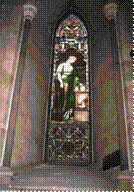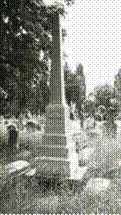
Главная страница Случайная страница
Разделы сайта
АвтомобилиАстрономияБиологияГеографияДом и садДругие языкиДругоеИнформатикаИсторияКультураЛитератураЛогикаМатематикаМедицинаМеталлургияМеханикаОбразованиеОхрана трудаПедагогикаПолитикаПравоПсихологияРелигияРиторикаСоциологияСпортСтроительствоТехнологияТуризмФизикаФилософияФинансыХимияЧерчениеЭкологияЭкономикаЭлектроника
Balfe the Composer and Conductor
|
|
Balfe’s output during the years 1835-1860 was incredible. Some years he was actually composing operas for London and Paris at the same time, and/or had two opera running in London at the same time. In addition to composing for opera, Balfe also wrote about 250 songs over a 35-year period. Some of his best known works include the following: “Killarney”, “Come into the Garden, Maud”, “Sands of Dee”, “The Arrow and the Song”, " Excelsior”, “Margarita”, “There is a name I never Breath”, and “The First Kiss”.
Balfe was considered an outstanding conductor by his peers. From 1846 to 1852 he was also the principal conductor for the Italian Opera at Her Majesty's theatre, London. He conducted Jenny Lind’s (1820-87) London debut in opera and all of her subsequent performances in that city. Balfe also conducted the London premiere of Verdi’s first successful opera, Nino (Nabucco). When Giuseppe Verdi (1813-1901), came to London in 1847 to conduct the premiere of his new opera I Masnadieri, starring Jenny Lind, after two performances he turned over his baton to Balfe to finish the run.
Balfe was married for 39 years to Lina Roser-Balfe (1808-88), an eminent Hungarian born soprano, whom he met at the Teatro Carcano in Milan or in Bergamo in 1831. They had two sons and two daughters. One son died in infancy the other son named Michael W. survived his father. The first daughter Louise was born in London around 1833-5. She married a well established German merchant Max Behrend and lived in Danzig and Berlin. She died prematurely in 1858. There were children from the marriage. The other daughter, Victorie, became a singer.
Balfe’s Grave
 The Balfe window at
The Balfe window at
St. Patrick Cathedral,
Dublin, (1879)
 Michael W. Balfe died at his home Rowney Abbey in Ware, England in October 1870 from bronchial asthma (a condition from which he suffered most of his life) complicated by pneumonia. He had been ill for almost a year before his demise. He was 62 years old. His wife, Lina Roser Balfe died in London in 1888. They are both buried in Kensal Green Cemetery, London.
Michael W. Balfe died at his home Rowney Abbey in Ware, England in October 1870 from bronchial asthma (a condition from which he suffered most of his life) complicated by pneumonia. He had been ill for almost a year before his demise. He was 62 years old. His wife, Lina Roser Balfe died in London in 1888. They are both buried in Kensal Green Cemetery, London.
Today, a very large marble statue of Michael W. Balfe stands on a pedestal in the center of the entrance foyer to the Drury Lane theatre, London, the very same theatre where Balfe experienced so much success with his operas, during the nineteenth-century. In April 1879 a stained glass window was erected in his honor in St. Patrick’s Cathedral Dublin. A plaque honoring him was placed in Westminster Abbey, London, in October 1882.
Great Singers
Performed Balfe’s music
Internationally Renowned Artists sang Balfe. Many ofthese distinguished artists were also creators for Rossini, Bellini, Donizetti, Verdi and others. They sang Balfe’s operas in Italian, German, French and other languages, around the capitals of Europe and other places during the
19th century: Marietta Alboni, Emma Albertazzi, Paul Barroilhet, Giovanni Belletti, Pasquale Brignoli, Italo Campanini, Filippo Coletti, Sophia Cruvelli, Jean De Reszke, (as a baritone), Gilbert Duprez, Celestine Galli-Marie, Eugenia Garcia.


Eric Roberts baritone
Welsh National Opera baritone
Eric Roberts explains how his career began and reminisces about his childhood in north Wales
After school in north Wales I went to art college in Manchester and was in a folk group with a civil engineer called John Tomlinson (who’s now received a knighthood for his services to opera). He started having singing lessons and I thought I wouldn’t mind having some lessons too. I’d been quite a good boy soprano, but had thought that would be it when my voice broke. I went to a marvellous chap called Gwilym Gwalchmai. I managed to get a scholarship which didn’t provide me with any money, but did give me lots of free lessons. In the end he asked if I wanted to sing professionally or just be a good amateur. The only career I could see after art school was to become an art teacher and that was a horrible idea so I said “I’ll do this properly” – I didn’t have a clue what I was doing! But that’s what I’ve done ever since.
I’ve only had one audition for a job in 30 years – and that was to join the chorus of the Welsh National Opera. So I came down to Cardiff and loved it and have been here ever since. I never saw the point of moving, even though some said I should be based in London. Our children have gone through the Welsh education system and it’s been great.
It’s nice to be settling down now and singing what they call the “buffo baritone roles” – an Italian saying for the character comedy roles. They’re challenging, but great fun.
I was born in Conwy as my father, Meurig Roberts, was a minister in Gyffin and in the English Presbyterian Church in Llandudno Junction. He was from Rhoshirwaun, just outside Aberdaron, and we used to go on holiday there every summer to stay with Anti Gini who lived in Ty Capel.
We went over to Bardsey Island a few times with my dad and I remember sitting in the farmhouse while he had a drink – he was very keen on buttermilk, which I thought was the most horrendous poison.
We lived in Conwy until I was about two. I remember very little of that time, but we used to go back there a lot and one of my dad’s friends ran a big coalyard right underneath the castle. I was fascinated because I always thought they were digging the coal from underneath the castle!
We then moved briefly to Liverpool, then to Bangor where dad was the minister of Tabernacl on Garth Road. I think it’s been converted into apartments now. I used to love Bangor. We lived at Pen y Geulan, Upper Garth Road. What’s weird is that another WNO singer, Philip Lloyd Evans, was brought up in that house. I remember meeting him some time ago and we were talking about coming from Bangor, and it got closer and closer until we realised we’d lived in the same house.
The view from there across to Bangor Mountain and the whole sweep of Eryri was amazing. Snowdon was right in front of us and on a clear day you could see the smoke of the train as it climbed the mountain. I also have very fond memories of Roman Camp. If there was any snow my brother and I had to be the ones to get the first sledge tracks, but the son of Sam Jones, head of the BBC at that time, lived over the other side of the Camp and would try to get there first! Next we moved to Cemaes where I went to a primary school with a head teacher called Cecil Jones, who ran the Cemaes Children’s Choir, which was very famous in its day. I went to Ysgol Syr Thomas Jones secondary school in Amlwch. Everyone from the local community went there because it was the only school in the area, so there was a perfect mix of all sorts of people – children of professionals, farmers, and other folk. The big guys on the music scene then were the Anglesey Strangers, they were  quite famous in their time and my mate Gordon Humphreys was one of them. We had a good art teacher at Amlwch, J O Hughes, who really put me on the path of going to art college. I left in my sixth form because we moved to Llangollen but Moira Mure, my art teacher there, was great too. Llangollen was where I met my wife Angharad – she was head girl and I was head boy.
quite famous in their time and my mate Gordon Humphreys was one of them. We had a good art teacher at Amlwch, J O Hughes, who really put me on the path of going to art college. I left in my sixth form because we moved to Llangollen but Moira Mure, my art teacher there, was great too. Llangollen was where I met my wife Angharad – she was head girl and I was head boy.
Elizabeth Harmetz, soprano, is a native of Los Angeles and a graduate of the San Francisco Conservatory of Music. Her most recent opera roles include Valencienne in The Merry Widow and Susanna in Mozart’s The Marriage of Figaro. Other opera and musical theater highlights of her career include the roles of Belinda in Dido and Aeneas, Rosina in Barber of Seville, Cherubino in The Marriage of Figaro, Kate in Kiss Me Kate, Sonia in Godspell, Laurey in Oklahoma and concert stagings as Eliza from My Fair Lady. In Italy Harmetz sang the opera roles Despina from Mozart’s Cosi fan tutte and Musetta from Puccini’s La Boheme. As a baroque artist she has performed excerpts from Julius Ceasar and Monteverdi’s Vespers. She is currently adding the opera roles Mimi (La Boheme), Fiordilligi (Cosi fan Tutte), and Michaela (Carmen) to her growing soprano repertoire.
Harmetz recently returned to Los Angeles from extended concert engagements in Orlando, where she honed her singing and performance skills weekly as a featured concert vocalist. In addition to her own solo concerts, Harmetz was last found at Universal’s Portofino Bay Hotel as the soprano opera soloist in their Musica della Notte! nightly concerts.
Harmetz enjoys all aspects of vocal performance with experience producing, directing and coaching as well as, of course, singing and performing. She is equally comfortable in the recital form and intimate concert setting as well as in the larger event and operatic productions.
5. Read the biography and quotes of Maria Callas. What do you think about her as a famous opera singer and a personality? Discuss this with other students.
|
|